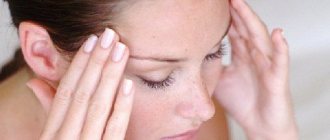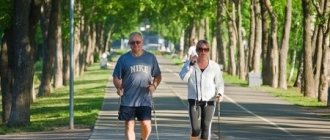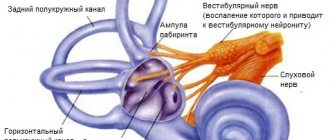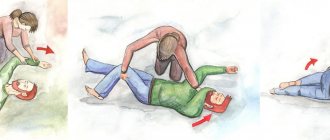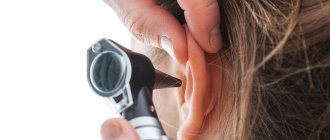Most balance problems arise from problems with the brain or inner ear, or from physical problems such as bone fractures or muscle injuries.
Balance problems can make walking difficult. They can make a person feel like everything is spinning around them.
Although many balance problems are relatively harmless, a person cannot diagnose the cause on their own.
People who have problems with balance and coordination should see a doctor if symptoms persist.
Symptoms of imbalance
Balance problems generally fall into two categories: physical injuries or neurological problems and inner ear problems.
A person with vertigo or other forms of dizziness may have trouble coordinating their movements. Their brain may not send the right signals and they may feel like the room is spinning.
In contrast, physical injuries usually cause problems with movement in certain areas of the body.
Neurological and inner ear problems
Problems with the nervous system, inner ear, or circulatory system can make it difficult to coordinate movements.
Some symptoms include feeling:
- dizziness;
- does not understand where the body is;
- worries when moving;
- the room is spinning;
- weakness or numbness on one side of the body.
Injuries
Sometimes a physical injury makes it difficult to move all or part of the body. Some symptoms include:
- muscle weakness that causes a person to fall easily;
- pain when moving, making it difficult to maintain balance;
- damage to the spinal cord, which makes it difficult or impossible to move certain parts of the body;
- strange sensations when moving;
- feeling of unsteadiness on your feet.
Causes of balance problems and dizziness in older people
Very often, loss of balance is caused by diseases of the ear , because there is an organ that is responsible for it - the vestibular apparatus. The cause can also be poisoning, for example, aspirin, quinine, botulinum toxin (causes botulism), mushrooms, alcohol, etc. After detoxification, as a rule, everything returns to normal.
But in the case of older people, dizziness and impaired sense of balance are very often a consequence of brain hypoxia - there is an insufficient supply of oxygen due to impaired blood flow. The blame for this lies in atherosclerotic plaques that form on the walls of arteries with “bad” cholesterol, as well as degenerative changes in the cervical spine. This results in difficulty moving blood in the arteries supplying the brain. Adverse vascular changes may also appear if diabetes or hypertension . In addition, cerebral hypoxia can be a consequence of severe anemia. In such cases, the most effective way to alleviate dizziness and loss of balance is to treat cardiovascular problems and the causes that cause them. You should also take care to reduce blood cholesterol levels.
Elderly people often have damaged peripheral nerves, muscles, and joints as a result of various diseases. This can also cause imbalance, or more precisely a motor disorder, but is not accompanied by dizziness. These types of symptoms appear in people who have been treated with antiepileptic agents (found in anticonvulsants), sedatives (a type of anti-anxiety drug), or in the later stages of multiple sclerosis.
Causes
Many factors can cause loss of balance.
Dizziness
Dizziness is a set of symptoms, not a diagnosis.
It is common, with approximately 20–30% of people experiencing symptoms at some point in their lives. This can make people feel like they are spinning or losing their balance, which can lead to falling.
People with inner ear problems are more vulnerable to dizziness because the inner ear is a key source of a person's sense of balance.
One common trigger for dizziness is benign paroxysmal positional vertigo. About 50% of all people will experience this condition at some point in their lives.
Another cause of vertigo is Meniere's disease, a disease that affects the inner ear, causing dizziness and hearing problems.
Dizziness can also occur when tiny crystals inside the inner ear move out of place, disrupting your balance. A doctor can help put them back in place.
Brain injury
Brain injuries can affect balance and mobility.
People who have suffered a traumatic brain injury or concussion may have balance problems. They may appear immediately after the injury or appear several weeks or months later.
Balance problems after a fall or car accident are a medical emergency.
Treatment depends on many factors, but physical therapy and occupational therapy often help.
Spinal cord injury
A spinal cord injury damages the spinal cord. This makes it difficult, and sometimes impossible, for the brain to send messages to the body.
Depending on the severity of the injury, this can cause problems with balance and mobility or can completely paralyze the person.
Treatment for spinal cord injury depends on the severity and location. Some injuries cannot be treated. And some may recover after surgery and physical rehabilitation.
Chronic diseases
Numerous chronic and progressive diseases can impair balance and coordination.
Multiple sclerosis is one of the most common. This occurs when the body attacks the protective covering of the nerves, causing progressive damage that can lead to serious problems with mobility and balance.
Parkinson's disease, which also gradually affects balance, can lead to falls or loss of balance.
Amyotrophic lateral sclerosis (ALS), sometimes called Lou Gehrig's disease, gradually damages nerve cells.
This makes voluntary movements such as walking difficult. Balance problems may appear before other symptoms.
Treatment for chronic diseases varies. Most progressive diseases have no cure, but treatment and rehabilitation can slow the progression of the disease.
Stroke
A stroke occurs when blood flow to the brain is temporarily stopped or slowed down. This can damage brain tissue and impair the brain's ability to communicate with the body.
Some people have balance problems during or after a stroke.
A stroke is a medical emergency. A person should seek emergency medical help if they experience numbness on one side of the body, a drooping face, and stroke-like symptoms.
Removing the blockage may reduce the risk of long-term brain damage. To recover from a stroke, a person may need medications and physical therapy.
Migraine
Migraine is a neurological headache that can affect vision, cause nausea, or cause unusual visual or auditory sensations.
Some people experience vestibular migraines. These headaches affect the vestibular system, which is responsible for balance.
Medicines or lifestyle changes may help relieve symptoms.
Age
Balance usually decreases with age.
While age does not necessarily cause balance problems, many lifestyle and health factors can play a role.
As people age, they may become more sedentary as their muscle mass decreases. This can make walking difficult, which can cause balance problems.
As a person ages, it may be more difficult to recover from injuries, which can worsen pre-existing balance problems.
Medicines
Any drug that changes brain function can affect balance.
For example, sleeping pills can make people feel slower and sluggish, causing dizziness.
Alcohol and drugs can also make walking difficult.
Almost any medicine has the potential to cause dizziness, although it is more common with certain medications, including:
- alcohol and illicit drugs;
- beta blockers;
- sedative medicine;
- some antibiotics;
- antidepressants;
- antipsychotic drugs;
- hypnotic.
Passive lifestyle
A sedentary lifestyle by itself does not cause serious balance problems. However, people who are usually inactive may find that they have problems with balance.
This may be especially true for older adults or people with other balance problems.
Balance is a skill that takes practice. Regular physical activity and balance exercises can help a person improve their coordination.
Injuries
Any physical injury has the potential to affect balance, especially when it makes it difficult to coordinate movements.
Sometimes injuries cause chronic pain or loss of strength, leading to long-term balance problems.
Rehabilitation and lifestyle restoration
Rehabilitation of patients at the Kuntsevo Medical Center is carried out in its own rehabilitation department. Therapeutic methods using drugs are complemented by health-improving gymnastics, massage procedures, and electrical stimulation of muscle tissue. Manual influence on the human body can be general or segmental. It activates receptors in the skin and muscles. Exercise therapy exercises are selected for each patient individually, depending on the age and degree of development of the disease.
Diagnostics
Diagnosing balance problems usually begins with a review of the person's medical history. The doctor may also do several tests, including:
- use balance tests to see how well a person moves;
- blood test for infections;
- researching injuries to see how they affect movement;
- ask the person to keep a log of dizzy episodes;
- ordering x-rays or other tests to look for injuries and broken bones.
Treatment of dizziness and loss of balance
The treatment for balance disorders depends on the cause. Sometimes antiemetics and sedatives are sufficient. But such therapy only removes the symptoms, not the cause of the disorder.
In some cases, doctors prescribe anti-inflammatory drugs that improve metabolism in nerve cells. Sometimes surgical treatment is necessary. , motor rehabilitation is very important for balance disorders and dizziness . With proper training, many problems can be eliminated, because balance is not only a well-functioning labyrinth.
( 6 ratings, average: 4.33 out of 5)
What causes problems with gait and balance?
Possible causes of temporary gait or balance problems include:
- injury
- damage
- inflammation
- pain
Long-term difficulties are often the result of muscle neurological problems.
Problems with gait, balance and coordination are often caused by specific conditions, including:
- joint pain or arthritis
- multiple sclerosis (MS)
- Meniere's disease
- cerebral hemorrhage
- a brain tumor
- Parkinson's disease
- Chiari malformation
- compression or infarction of the spinal cord
- Guillain-Barre syndrome
- peripheral neuropathy
- myopathy
- cerebral paralysis
- gout
- muscular dystrophy
- obesity
- chronic alcohol abuse
- vitamin B12 deficiency
- stroke
- dizziness
- migraine
- deformation
- some medications, including high blood pressure medications
Other causes include limited range of motion and fatigue. Muscle weakness may occur in one or both legs, making walking difficult.
Numbness in your feet and legs can make it difficult to tell where your feet are moving or whether they are even touching the floor.
Manifestations
Pathology can be suspected based on characteristic signs. If you have one of them, you should consult a doctor for an examination:
- deviation to one side while driving;
- dizziness;
- nausea and vomiting;
- noise in ears;
- unsteadiness when walking;
- excessively wide steps and sweeping movements;
- difficulty standing still;
- loss of coordination when closing eyes;
- difficulties when starting to move;
- difficulty changing movement speed;
- frequent falls;
- inability to stop when asked;
- uncertain movement;
- Difficulty walking on uneven surfaces and overcoming obstacles.
The manifestations of the disease are related to the cause of its occurrence.
Important
In case of a sudden attack of dizziness:
- for several hours, remain calm, finding a convenient body position that is comfortable for you;
- take a sedative: growing anxiety will worsen your condition and prolong the attack;
- if the dizziness is very severe, accompanied by vomiting and other alarming symptoms (numbness of a part of the body, face, rise in blood pressure to high levels), call an ambulance.
No dizziness. Exercises for training the vestibular apparatus
Read more >>
Etiology
The problem occurs due to damage to the balance organs, the central nervous system (CNS), or asynchronous contraction of muscle groups. This happens due to the presence of the disease in one of the listed locations.
Symptoms of gait disturbance are typical for:
- stroke in the pons or cerebellum;
- neoplasms in the brain or spinal cord;
- traumatic brain injuries;
- genetic abnormalities;
- neurodegenerative diseases, such as multiple sclerosis;
- alcohol, chemical or drug poisoning;
- cerebral palsy;
- Meniere's disease;
- endocrine disorders;
- pathologies of blood circulation in the inner ear;
- oncological diseases of the auditory nerve;
- vitamin deficiency B12;
- hydrocephalus;
- Parkinson's disease;
- abnormalities of cerebral vessels.
Treatment for gait instability and balance problems is developed in accordance with the etiology of the disease and the age of the patient.
Don't panic!
Unfortunately, it is almost impossible to get rid of true (systemic) vertigo forever, with the exception of positional vertigo, in which a simple procedure is sufficient, during which an experienced doctor, changing the position of the patient’s head in a certain sequence, helps move the otoliths to their original place.
The doctor’s task is to remove the exacerbation and achieve remission of the disease for as long as possible. Not only drug therapy can help with this, but also a whole range of preventive measures aimed at strengthening the vestibular apparatus, which must be trained.
Doctors do not share the desire of many patients suffering from dizziness to avoid physical activity. On the contrary, they believe, the vestibular apparatus needs to be loaded. How? At least walk up and down the stairs, first holding the railing, then without it. At the same time, you should not be afraid of the resulting dizziness. With frequent repetition of this and other exercises, dizziness will decrease.
By the way, more detailed information about the prevention of dizziness can now be found in classes at the School of Dizziness - recently, neurologists from some medical institutions (in particular, Moscow City Clinic No. 2) began conducting classes for their patients.
